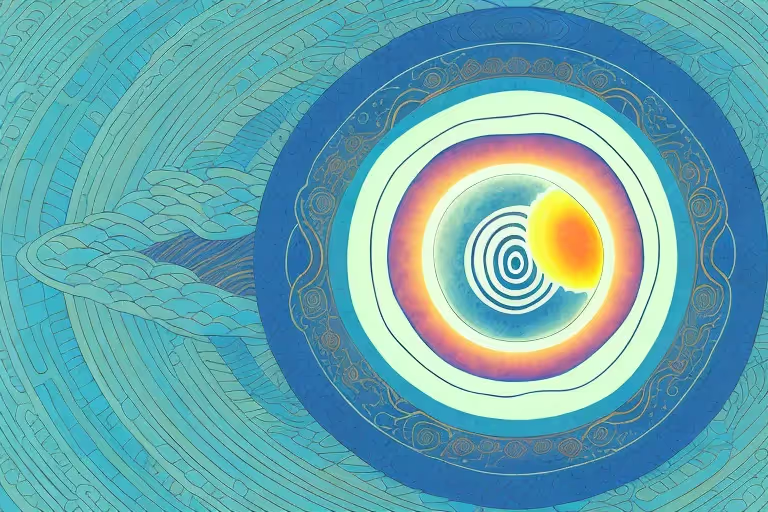Narcolepsy is a chronic neurological disorder that affects the brain's ability to control sleep-wake cycles. People with narcolepsy experience periods of extreme daytime sleepiness and sudden, irresistible bouts of sleep that can strike at any time. These "sleep attacks" usually last a few seconds to several minutes.
While narcolepsy may occur on its own, it is also associated with certain neurological disorders, such as multiple sclerosis. Despite its severity, narcolepsy is often under-recognized and, therefore, under-diagnosed. This article will delve into the intricacies of this sleep disorder, providing a comprehensive understanding of its causes, symptoms, diagnosis, and treatment options.
Understanding Narcolepsy
Narcolepsy is a sleep disorder characterized by excessive sleepiness, sleep paralysis, hallucinations, and in some cases, sudden loss of muscle tone (cataplexy). It affects both men and women equally, and symptoms often start in childhood or adolescence. However, many people with narcolepsy don't get diagnosed until adulthood.
People with narcolepsy often find it difficult to stay awake for long periods, regardless of the circumstances. Narcolepsy can cause serious disruptions in your daily routine. Unfortunately, narcolepsy is a chronic condition, which means it lasts a long time—often for life. However, medications and lifestyle changes can help manage the symptoms.
The Science Behind Narcolepsy
Narcolepsy involves a problem in the brain's signals. It's related to the signaling processes that regulate sleep and wake states. In narcolepsy, these signals get mixed up, which can cause sudden shifts between wakefulness and sleep.
The exact cause of narcolepsy isn't known, but it's believed to be related to a lack of the brain chemical hypocretin, which regulates sleep. This deficiency is thought to result from the immune system mistakenly attacking the cells that produce this neurotransmitter.
Types of Narcolepsy
There are two main types of narcolepsy: type 1 and type 2. Type 1 narcolepsy, also known as narcolepsy with cataplexy, is characterized by the presence of cataplexy and a low level of hypocretin. Cataplexy is a sudden loss of muscle tone while awake, resulting in weakness and a loss of voluntary muscle control. It is often triggered by strong emotions such as laughter, surprise, or anger.
Type 2 narcolepsy, also known as narcolepsy without cataplexy, is diagnosed when the individual has excessive daytime sleepiness but no cataplexy. In this case, the level of hypocretin is typically normal. Both types of narcolepsy can be severely disabling, making it difficult for individuals to lead normal lives.
Symptoms of Narcolepsy
The symptoms of narcolepsy can vary greatly from person to person, and they may resemble other medical conditions or psychiatric disorders. The most common symptoms include excessive daytime sleepiness, cataplexy, sleep paralysis, hallucinations, and disrupted nighttime sleep.

Excessive daytime sleepiness (EDS) is usually the first symptom to appear, and it is often the most troublesome. It can cause low energy, mental cloudiness, a lack of energy, and a depressed mood. Cataplexy, which affects about 70% of people with narcolepsy, causes a sudden loss of muscle tone and control, often triggered by strong emotions.
Sleep Paralysis and Hallucinations
Sleep paralysis is another common symptom of narcolepsy. This is the temporary inability to move or speak while falling asleep or upon waking. These episodes can last a few seconds to a couple of minutes and can be quite frightening. Some people may also experience hallucinations as they fall asleep or wake up.
These hallucinations, known as hypnagogic hallucinations if they happen as you fall asleep and hypnopompic hallucinations if they occur upon waking, can be particularly vivid and frightening, often involving images or sounds that are not there.
Disrupted Nighttime Sleep
Despite the excessive daytime sleepiness, many people with narcolepsy have difficulty sleeping through the night. They may wake up frequently during the night, have vivid nightmares, or experience other sleep disorders, such as sleep apnea or restless legs syndrome.
It's important to note that not everyone with these symptoms has narcolepsy. Other sleep disorders, medical conditions, or mental health disorders can cause similar symptoms. Therefore, it's crucial to seek a professional evaluation if you're experiencing any of these symptoms.
Diagnosing Narcolepsy
Diagnosing narcolepsy can be challenging as it often involves ruling out other conditions that could be causing the symptoms. The process usually involves a physical exam, a detailed medical history, and specialized sleep tests.
The two main tests used to diagnose narcolepsy are the polysomnogram (PSG) and the multiple sleep latency test (MSLT). The PSG is an overnight test that measures various bodily functions during sleep, including brain activity, eye movement, heart rate, and breathing. The MSLT is a test that measures how quickly you fall asleep during the day.
Polysomnogram (PSG)
The polysomnogram is a comprehensive test that records your physical activity during sleep. Electrodes are placed on your scalp, face, chest, limbs, and finger, and these record your brain waves, heart rate, breathing, and body movements. The test can help determine whether your symptoms are caused by another condition such as sleep apnea or periodic limb movement disorder.
The PSG also measures the stages of sleep to see if you enter rapid eye movement (REM) sleep at the beginning of the sleep cycle rather than after a period of non-REM sleep, which is a common feature of narcolepsy.
Multiple Sleep Latency Test (MSLT)
The multiple sleep latency test is a full-day test that measures your tendency to fall asleep during the day. It's conducted immediately after the PSG test, and it involves five scheduled naps separated by two-hour breaks. During each nap trial, you'll lie quietly in bed and try to go to sleep. The goal is to determine how long it takes you to fall asleep and whether you enter REM sleep during these naps.
If you fall asleep quickly in most of the nap trials and enter REM sleep in at least two of them, it suggests you may have narcolepsy. The MSLT also helps distinguish between narcolepsy and other conditions that can cause excessive daytime sleepiness.
Treatment for Narcolepsy
While there's no cure for narcolepsy, medications and lifestyle changes can help manage the symptoms. Treatment is tailored to the individual, based on their symptoms and the severity of the condition. The goal of treatment is to help control excessive daytime sleepiness and cataplexy.
Medications for narcolepsy include stimulants, selective serotonin reuptake inhibitors (SSRIs), and sodium oxybate. Stimulants are used to control excessive daytime sleepiness and improve alertness. SSRIs and related drugs help manage the symptoms of cataplexy, sleep paralysis, and hallucinations. Sodium oxybate can help improve nighttime sleep and control daytime sleepiness and cataplexy in some people.
Medications
Stimulants such as modafinil and armodafinil are often the first line of treatment for excessive daytime sleepiness. These medications promote wakefulness by stimulating the brain. They are generally effective and have fewer side effects compared to older stimulants.
For cataplexy, sleep paralysis, and hallucinations, doctors often prescribe antidepressants. These include SSRIs such as fluoxetine and serotonin and norepinephrine reuptake inhibitors (SNRIs) such as venlafaxine. Sodium oxybate, also known as gamma hydroxybutyrate (GHB), is highly effective for cataplexy. It's also used to improve nighttime sleep, which is often poor in narcolepsy.
Lifestyle Changes
Along with medication, certain lifestyle changes can help manage the symptoms of narcolepsy. These include maintaining a regular sleep schedule, taking short, scheduled naps during the day, and avoiding caffeine and alcohol, which can interfere with sleep.
Regular exercise, a healthy diet, and other good sleep habits can also improve symptoms. It's also important to inform teachers, employers, and friends about the condition so they can provide support and accommodate needs when necessary.
Living with Narcolepsy
Living with narcolepsy can be challenging, but with proper treatment and support, most people with the condition lead full and rewarding lives. It's important to stay connected with your healthcare team and to get regular check-ups to ensure your treatment plan is working and to adjust it as necessary.

Support groups, both in-person and online, can also be a valuable resource for coping with the challenges of narcolepsy. They can provide a space to share experiences, learn from others who are facing similar challenges, and get advice on coping strategies.
Impact on Daily Life
Narcolepsy can have a significant impact on many aspects of daily life, including work, relationships, and activities. Excessive daytime sleepiness can make it difficult to concentrate and stay awake, which can affect performance at work or school. Cataplexy can be unpredictable and potentially dangerous, especially if it occurs while the person is driving or operating machinery.
Despite these challenges, many people with narcolepsy are able to lead fulfilling lives. With appropriate treatment and lifestyle adjustments, they can manage their symptoms and minimize the impact on their daily life.
Psychological and Social Support
Living with a chronic condition like narcolepsy can be emotionally challenging. It's important to seek psychological support if you're feeling stressed, anxious, or depressed. Cognitive behavioral therapy (CBT) can be particularly helpful in managing the emotional effects of narcolepsy.
Social support is also crucial. Friends, family, and support groups can provide understanding and encouragement. It's also beneficial to educate those around you about narcolepsy so they can provide the right support and understanding.
In conclusion, narcolepsy is a chronic neurological disorder that disrupts the normal sleep-wake cycle. While it can be challenging to live with, a combination of medications, lifestyle changes, and support can help manage the symptoms and improve quality of life. If you suspect you have narcolepsy, it's important to seek medical advice to get a proper diagnosis and start treatment.



.webp)






.avif)

%20(1).avif)


.avif)
.avif)
.webp)


.avif)


















































































































.avif)

















.svg)









